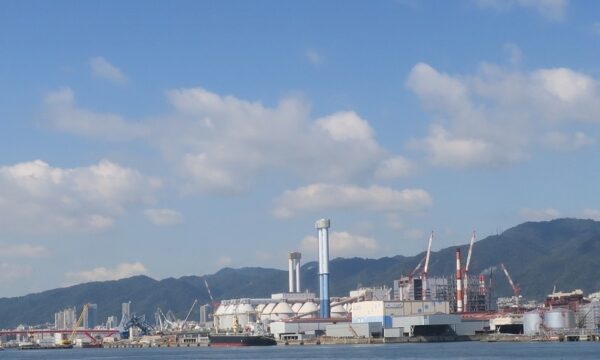In April 2021, two proposed plans for coal-fired power plants (tentative names: Akita Port Thermal Power Station in Akita Prefecture, and Nishi-Okinoyama Coal-Fired Power Plant in Ube, Yamaguchi Prefecture) were canceled, essentially bringing the number of planned new coal-fired power plants in Japan to zero. However, some projects that have completed environmental impact assessment or are currently under construction will begin operation in the near future.
On May 5, Kobe Steel’s Coal-fired Power Plant Unit 3 finished its construction and progressed further with the firing of its boiler. The original plans were to fire the boiler in mid-April 2021, but Kobe Steel has made no official announcement regarding this change in schedule. After the trial operation, it aims to begin commercial operation by January or February 2022.
Local citizen group No Coal Kobe, which has been working to stop the power plant, sent a statement of protest to the presidents of operators Kobe Steel and Kobelco Power Kobe No. 2.
(From the statement)
Residents also criticized the current stance of Kobe Steel, the defendants in the court case, by citing the company’s recognition of air pollution victims in a past trial.
(From the statement)
The construction of Kobe Coal-fired Power Plant Units 3-4, is currently being disputed in two trials: a civil lawsuit seeking an injunction of these plants is still ongoing in the Kobe District Court, and an administrative lawsuit urging a cancellation of the final notice the government approved for the environmental impact assessment (EIA) that has moved to an appeals court.
Although Kobe Steel has committed to the challenge of carbon neutrality in its mid-term management plan, it is still currently preparing for the operation of Units 3 and 4 (scheduled to begin commercial operation in FY2022), and is planning to maintain the operation of its coal-fired power plants even in 2030.
In a time when combating climate change is an urgent issue, new coal-fired power plants should not be put into operation.
Wise judgment is required to respond to the voices of the residents and plaintiffs who are concerned about the environmental impacts of coal-fired power plants.

